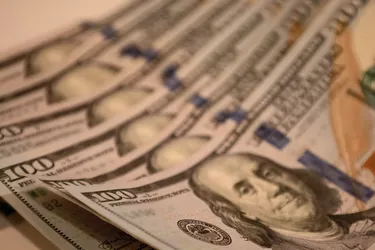
People with common last names, like Smith, Johnson or Williams, might say that it's fairly common to show up for a dinner reservation to find someone with the same last name competing for the table. So how do you prove that it's "your" table? Most of the time, you can't, and graciousness and a quick-thinking manager can smooth over what could be a contentious exchange.
Fortunately, you won't have such worries if you're on your way to cash a money order. You'll need an ID to verify your identity, and the matter of proof will be settled on the spot. You may not be able to "have a seat in the bar while you wait," but you may have a few minutes to ponder how you might use this safe and secure form of payment in your own financial life by picking up, or purchasing, one of your own.
Video of the Day
Video of the Day
Consider also: How Does a Money Order Work?
Purchasing Is Easy
Money orders are a fine way to send and accept money if mailing cash or a personal check seems too risky. It might even be impossible because one party in the transaction doesn't have a bank account. In this way, a money order is similar to a check that has already cleared; it's as good as cash.
Many newcomers to money orders are struck by how similar they look to checks. And while there are similarities in the straightforward formats of both instruments, a money order also contains the name and address of both the purchaser and the recipient. The date, amount of the money order and the purchaser's signature also must appear on a money order. In the absence of this important information, the piece of paper is just that: A piece of (worthless) paper.
You may be wondering, do you need an ID to pick up (meaning, purchase) a single money order? The answer is no, at least in most cases. It's a bit illogical that most money orders are capped at $1,000 each, though some businesses allow people to buy several money orders at once. In these cases, a government-issued photo ID is often required. Acceptable forms of identification include:
- driver's license
- state ID card
- passport
- military ID
In addition to an ID, it's smart to bring cash to pay for a money order. Some issuers accept payment with credit cards, some with debit cards but most businesses, post-covid, have returned to accepting cash.
Cashing Is Easy, Too
Until you decide whether using money orders to pay bills or make a big purchase appeals to you, you still have the matter of the money order that's been given to you. You may be tempted to sign the back of the money order before you leave the house, but it's better to wait so that the customer service representative who cashes your money order can see you do it with his own eyes, the U.S. Postal Service says. All hope shouldn't be lost, though, if in your haste you slip up and sign the money order anyway. In this case, you probably will be asked to sign your name to a blank piece of paper so that the rep can see that the two signatures match.
If there's one mistake you don't want to make, it's leaving a form of identification behind. You'll need a photo ID to prove that the name following the words "pay to" is really you. Bring a few dollars (meaning up to $5) with you too. Fees for cashing money orders vary, often increasing with the monetary amount. However, a money order issued by the USPS and also taken to a post office can be cashed in any amount for free.
Consider also: Does a Money Order Need a Payee?
Consider Cashing Locations
This reality points up another lesson about using money orders: It's best to cash one at the same place that issued it to reduce or eliminate fees as well as delays and potential hassles. So if your money order was purchased from Chase, go to a Chase branch to cash it; if it was purchased from a credit union, try to go there.
If you can't make such a congruent transaction, you should be relieved to know that many grocery stores, department stores and currency exchanges cash money orders. However, if you do have a bank account, don't need the cash in your pocket and seek a truly speedy transaction, consider depositing the money order into your account. It's a no-questions-asked way to close out the transaction – just as if you were depositing a personal check, Western Union says. Besides, with the money safely in the bank, you may wish to celebrate with dinner reservations at the finest restaurant in town – with a special tip for the hostess to hold your table.